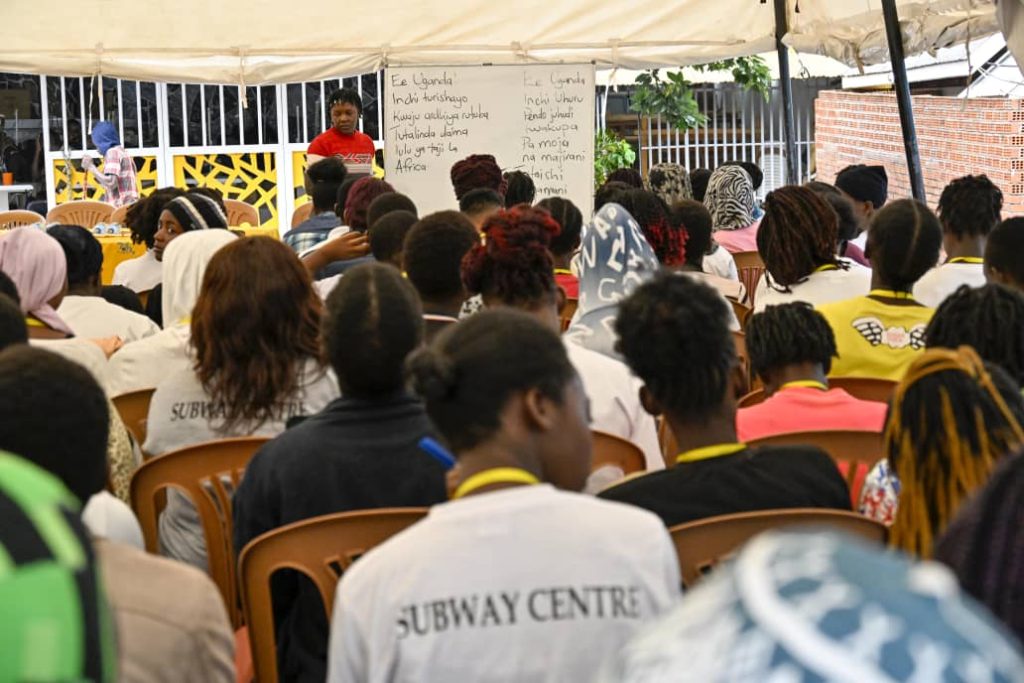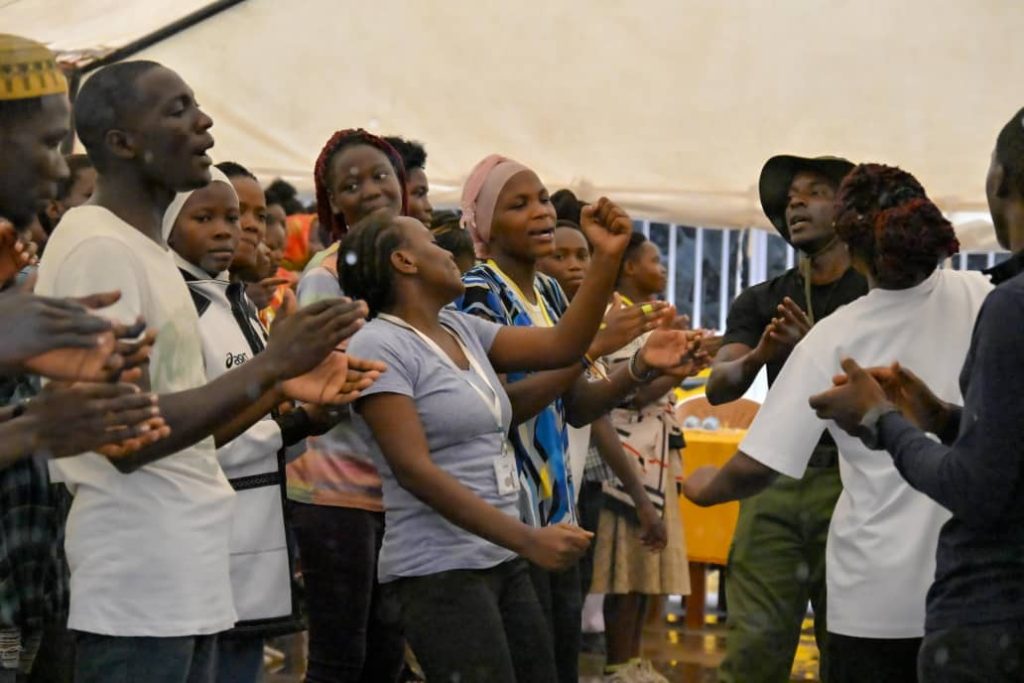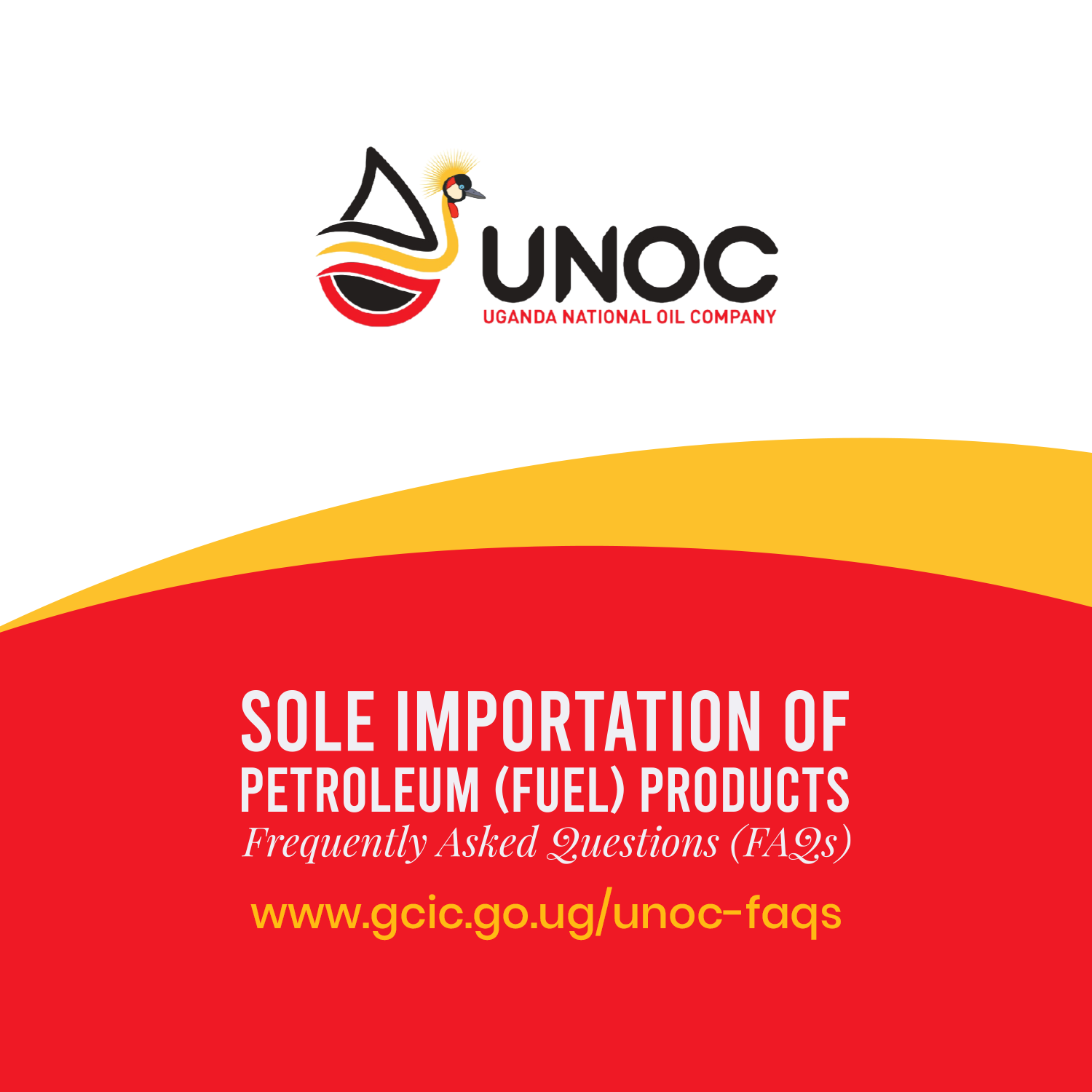The Presidential Initiative on Skilling the Girl/Boy Child has begun a transforming path to empower children in Kampala. This week, the programme increased its efforts by introducing patriotism training, which consists of drills and a series of life-enhancing lectures.
The purpose is to develop these children by providing them with the skills and mindset necessary to become better citizens when they return to their communities.
The initiative, which has centres in Wandegeya, Wabigalo, Mutundwe, Mulago, Kikoni, Nakulabye, Luzira Prisons, Subway, and Kigoowa, has been nothing short of extraordinary since its inception. Over 35,728 students have enrolled in various skills programmes, with an impressive 21,984 successfully graduating. Currently, more than 5,187 students are actively pursuing training at these centres.
The training programme is structured as a six-month, semester-based curriculum culminating in certification through the Directorate of Industrial Training (DIT). This credential not only validates the skills acquired but also opens doors to formal employment opportunities, ensuring that students are well-prepared for the job market.
Dr. Faith Mirembe Katana, the Director of the Presidential Initiative on Skilling the Girl/Boy Child (PISGBC) Project, highlighted the benefits of the program. “Our six-month training programme equips dropouts with skills, providing them with essential resources like instructional materials and meals during all their time at the various centres,” she said. “We train individuals who then become instructors, attracting their friends and becoming productive citizens.”
A unique aspect of this initiative is its focus on developing not just skills but also a positive mindset and a sense of patriotism among the youth. Dr. Katana emphasised the importance of this approach: “Many young people hold negative opinions and lack knowledge about their country, so we focus on fostering patriotism and a positive attitude. While skills and earning potential are important, changing an entitled mindset is essential for personal and national growth.”
The training includes lectures on various topics, such as saving money, loving their country, being good leaders, combating corruption, and becoming responsible Ugandans who wish for their country’s development. These lectures aim to instill a sense of duty and pride in the students, helping them understand the importance of their contributions to the nation.

At the Kigoowa Centre, administrator Tinah Namata expressed her gratitude to the president for supporting the students. “I thank the president for ensuring that these students receive all the resources they need to acquire valuable skills,” she said. “We are happy that all our students will be taking the DIT exams, marking a significant step forward in their development.”
Namata also highlighted the impact of patriotism training on the students’ mindsets. “As they learn about patriotism today, we expect it will profoundly influence their mindsets, helping them become exemplary citizens once they complete their training,” she added.
Ronah Kamahoro, administrator of the Subway Centre, echoed similar sentiments. “We are teaching these learners to deeply understand and love their country, including our past, present, and future aspirations,” Kamahoro explained. “This programme is invaluable for students as they prepare to enter the workforce, equipping them with skills to be loyal and responsible in their workplaces and to interact well with others.”
Kamahoro also stressed the importance of patriotism in guiding students towards a positive mindset change. “Given their diverse backgrounds, our students need patriotism to guide them towards a positive mindset change, making them better citizens who love and contribute to their country,” she said.
Adubu Gloria, a student studying embroidery at the Kigoowa Centre, shared her insights on the programme’s impact. “Today, we’ve been learning about patriotism and the importance of loving our country, along with exercises to keep us healthy,” Gloria said. “We envision our country becoming an economic superpower, and we know that developing our skills is key to achieving this goal.”
Gloria emphasised the importance of starting small and dreaming big. “Loving my country and starting small while dreaming big can turn our aspirations into reality,” she explained. “Understanding our heritage and our future is essential, and programmes like this help everyone, not just students, to grasp that importance.”
The Presidential Initiative for Skilling the Girl/Boy Child stands as a beacon of hope for Uganda’s youth, offering a lifeline to those who have grappled with limited opportunities. Beyond addressing unemployment, this initiative plays a pivotal role in shaping the nation’s future. By empowering vulnerable urban youth with practical skills, it enhances their self-reliance and contributes significantly to crime reduction and the creation of a more prosperous society.

Dr. Katana highlighted the broader impact of the initiative. “Initially, there was resistance, but gradually, people began to embrace the idea of personal responsibility and patriotism,” she said. “By the end of our sessions, participants recognise their ability to contribute to their country and shift their mindset from dependency to empowerment. It’s not just about politicians; everyone has a role to play in governance and national development.”
As the initiative continues to grow, the focus remains on collaboration and collective effort. “Understanding who you are and what you have is crucial; otherwise, others will take advantage of you,” Dr. Katana explained. “We emphasise collaboration and working together to achieve common goals.”
The journey since the inception of the Presidential Initiative on Skilling the Girl/Boy Child has been marked by remarkable achievements and transformative impacts. With a vision of a prosperous and empowered Uganda, the initiative continues to pave the way for a brighter future for the nation’s youth.
The Presidential Initiative on Skilling the Girl/Boy Child is more than just a training programme; it is a comprehensive approach to youth empowerment and national development. By providing skills training, fostering patriotism, and promoting positive mindsets, the initiative is shaping a generation of responsible and capable citizens. As these young individuals step into the future, they carry with them the tools, knowledge, and pride necessary to contribute meaningfully to their communities and their country.





